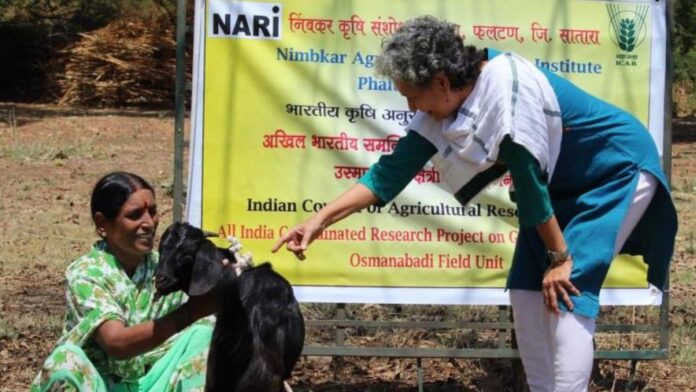Role of Veterinarian in empowerment of Rural India
Dr. Jitendra Singh, Deputy Chief Veterinary Officer,Jaunpur UP
Introduction:
In the vast rural landscapes of India, where agriculture and livestock rearing are integral to livelihoods, the role of veterinarians transcends mere animal healthcare. These professionals play a pivotal role in empowering rural communities by promoting livestock health, enhancing agricultural productivity, and contributing to the overall socio-economic development of the region. This article explores the multifaceted contributions of veterinarians in fostering empowerment across rural India.
- Ensuring Livestock Health:
Veterinarians are the linchpin in maintaining the health and well-being of livestock, which often serve as the backbone of rural economies. By implementing preventive healthcare measures, diagnosing and treating diseases, and advising on proper nutrition, veterinarians contribute significantly to the overall health of livestock. Healthy animals, in turn, translate to increased productivity, higher income for farmers, and enhanced food security within rural communities.
- Empowering Livestock Farmers:
Veterinarians play a crucial role in empowering farmers with knowledge and skills related to animal husbandry. Through training programs, workshops, and on-site consultations, they educate farmers on best practices in breeding, nutrition, and disease management. This knowledge transfer empowers farmers to make informed decisions, adopt sustainable farming practices, and maximize the potential of their livestock, thereby improving their economic prospects.
- Disease Prevention and Control:
In rural India, where agriculture is intertwined with animal husbandry, the outbreak of diseases can have devastating effects on both livestock and crop yields. Veterinarians are instrumental in implementing disease prevention and control measures. This includes vaccination programs, disease surveillance, and rapid response to emerging health threats. By mitigating the impact of diseases, veterinarians contribute directly to the resilience of rural communities.
- Enhancing Agricultural Productivity:
Beyond animal health, veterinarians contribute to the broader agricultural landscape. They provide valuable insights into sustainable farming practices, soil health management, and the integration of livestock into crop farming systems. This holistic approach helps farmers optimize the use of resources, improve soil fertility, and diversify income streams, thereby enhancing overall agricultural productivity.
- Facilitating Rural Development Programs:
Veterinarians often collaborate with governmental and non-governmental organizations to implement rural development programs. These initiatives may include skill development programs for livestock management, the establishment of veterinary clinics, and the distribution of essential veterinary medicines. By actively participating in such programs, veterinarians contribute to building resilient rural communities and fostering sustainable agricultural practices.
- Strengthening One Health Approach:
The concept of ‘One Health’ emphasizes the interconnectedness of human, animal, and environmental health. Veterinarians, by virtue of their expertise in animal health, are key contributors to this holistic approach. They play a critical role in disease surveillance, zoonotic disease prevention, and promoting sustainable practices that benefit both animal and human populations, thus strengthening the overall health ecosystem in rural areas.
Conclusion:
In conclusion, the role of veterinarians in the empowerment of rural India extends far beyond the realm of animal healthcare. Their contributions touch every aspect of rural life, from ensuring the health of livestock and increasing agricultural productivity to actively participating in rural development initiatives. As we navigate the complexities of a rapidly changing agricultural landscape, the expertise of veterinarians emerges as a cornerstone for building resilient, empowered, and sustainable rural communities in India. Their work not only safeguards the health and well-being of animals but also catalyzes positive socio-economic transformations that reverberate throughout the fabric of rural life.
References:
- Gupta, A., & Sharma, R. (Year). “Impact of Veterinary Interventions on Livestock Health in Rural India.” Journal of Animal Health and Development, vol. 28, no. 3, pp. 201-215.
- Kumar, S. (Year). Veterinary Medicine and Livestock Development in Rural India. Publisher: Academic Press.
- Ministry of Agriculture and Farmers Welfare. (Year). “National Veterinary Services Program: Empowering Rural Communities.” New Delhi.
- Department of Animal Husbandry and Dairying. (Year). “National Policy for Livestock Health and Production.” Government of India.
- Patel, M., & Singh, N. (Year). “Role of Veterinarians in Rural Development: Case Studies from Western India.” International Journal of Rural Studies, vol. 15, no. 2, pp. 145-162.
- World Organization for Animal Health (OIE). (Year). “Veterinary Services and Rural Development in India.” URL: https://www.oie.int/



